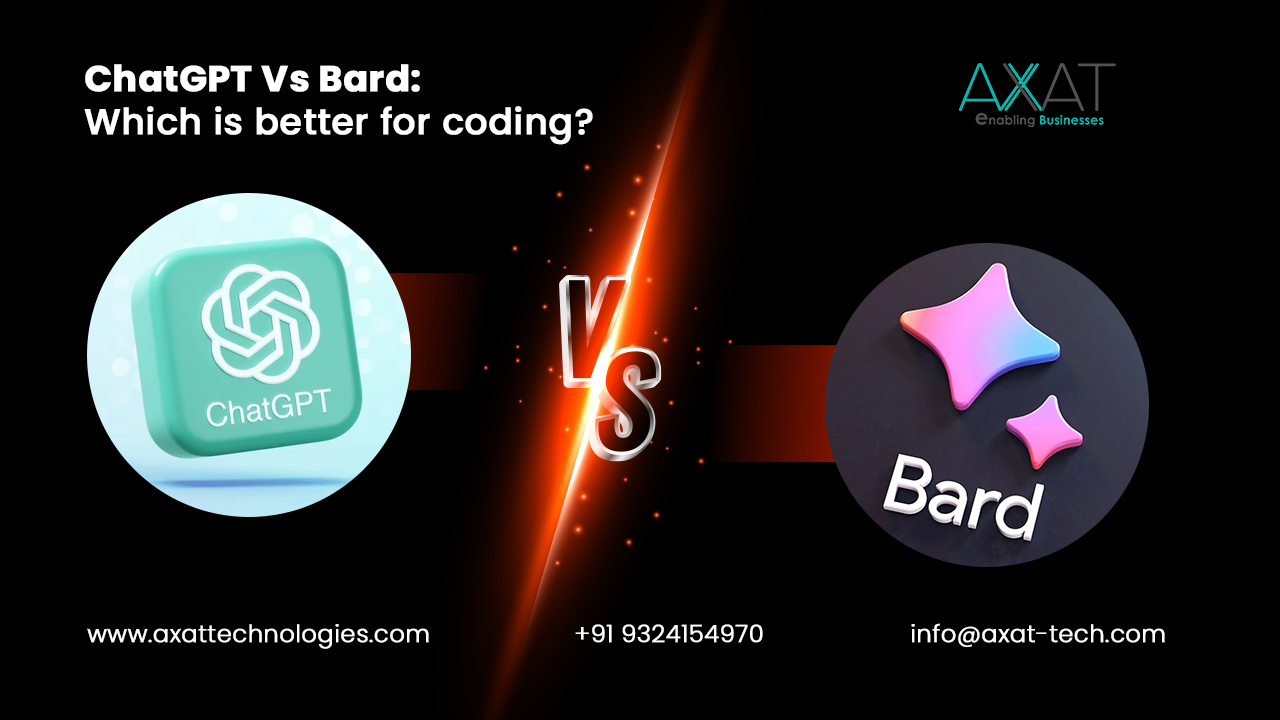In today's rapidly evolving technological landscape, efficient programming and coding are essential skills for anyone aspiring to be a software developer or engineer. As the demand for coding assistance continues to rise, developers now have access to advanced AI-powered tools that can assist them their coding endeavors. Two such tools gaining popularity are ChatGPT and Bard. In this blog post, we will compare and contrast these two AI models to determine which is better suited for coding. So, let's dive in and explore the capabilities and strengths of both ChatGPT and Bard.
ChatGPT
ChatGPT, developed by OpenAI, is an impressively versatile model that excels in generating human-like text responses. Designed to simulate conversational interactions, ChatGPT can offer programmer-friendly responses to coding-related queries. It is trained on a vast number of diverse datasets comprising code examples, Stack Overflow, and related resources, which allows it to grasp programming concepts proficiently.
Advantages of ChatGPT for Coding
- Knowledgeable Responses: ChatGPT's extensive training corpus enables it to provide well-informed responses to coding queries. Whether it's syntax clarification, algorithmic concepts, or debugging assistance, ChatGPT can offer valuable insights, saving developers time and effort.
- Real-time Problem Solving: ChatGPT's ability to generate immediate responses aids in tackling coding problems swiftly. This feature becomes particularly useful when developers encounter roadblocks during their coding process, allowing them to overcome challenges in real time.
- Friendly Collaborator: With its conversational tone, ChatGPT can act as a supportive coding companion. Its human-like engagement adds a touch of camaraderie to the coding experience, making it a preferred choice for those seeking assistance in a more conversational style.
Limitations of ChatGPT for Coding
- Lack of Contextual Understanding: Despite its remarkable capabilities, ChatGPT may sometimes struggle with contextual understanding. When faced with complex or ambiguous coding requests, it might provide responses that are appropriate but not necessarily accurate. Developers should exercise caution and not rely solely on ChatGPT's answers without cross-referencing with other sources.
- Potential Code Fragility: ChatGPT might produce code recommendations that appear correct but may contain hidden flaws or vulnerabilities. Code generated by AI models should therefore be carefully reviewed and tested to ensure its correctness and maintain security standards.
Bard
Bard, developed by OpenAI as well, is specifically designed to generate code by understanding natural language prompts. Trained on a vast dataset that includes high-quality code from various sources, Bard exhibits excellent code generation capabilities, offering developers a code-writing assistant.
Advantages of Bard for Coding
- Code Generation: Bard's primary strength lies in its ability to convert natural language descriptions of programming tasks into executable code snippets. By providing clear instructions, developers can leverage Bard's code generation capabilities to quickly prototype and implement their ideas.
- Code Refactoring: Bard is skilled at optimizing and simplifying existing code. It can detect redundant code, suggest more efficient alternatives, and assist in refactoring complex code structures. This not only enhances code readability but also improves overall performance.
- Detailed Explanations: Bard doesn't stop at generating code; it also explains the reasoning behind its code suggestions. This feature makes it an excellent tool for learning and understanding programming concepts and techniques.
Limitations of Bard for Coding
- Limited Domain Expertise: Bard performs exceptionally well with common programming tasks. However, when confronted with highly specialized or niche coding requirements, it may struggle to provide accurate or satisfactory solutions. Developers should consider seeking domain-specific assistance for such cases.
- Lack of Flexibility: While Bard excels in generating code, its responses are generally limited to specific coding contexts. Developers seeking more abstract or conceptual guidance might find Bard's rigid adherence to code generation constraints unsuitable.
Final Thoughts
In the battle of ChatGPT vs Bard, determining the winner largely depends on individual coding preferences and requirements. ChatGPT shines as a knowledgeable and supportive companion, offering helpful responses and real-time problem-solving. On the other hand, Bard's specialized code generation capabilities, along with its code refactoring expertise and detailed explanations, make it an indispensable tool for rapid code prototyping and optimization.
Both ChatGPT and Bard have their respective advantages and limitations. Mixing and matching these AI models might be the optimal solution for developers, utilizing ChatGPT for conceptual understanding and code discussion, and Bard for generating code snippets and improving existing codebases. Ultimately, the choice between ChatGPT and Bard boils down to personal preference, coding style, and the particular task at hand. So, the next time you embark on a coding adventure, consider exploring the strengths of ChatGPT and Bard and choose the AI companion that suits your needs best.
